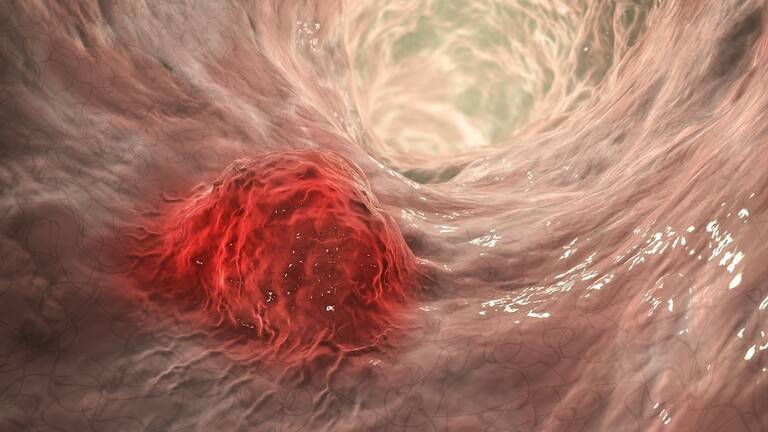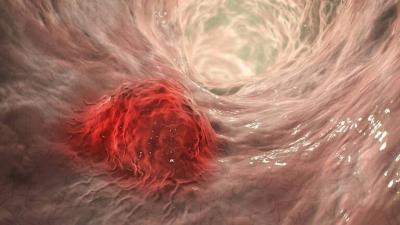Protein P53 acts as a tumor suppressor gene in humans, regulating cell growth and disrupting harmful cells by forcefully dividing them. Researchers reported around 15 years ago that when cells are starved of glucose and the protein changes its function, instead of affecting cancerous cells, it helps them survive. A few years later, Karen Vosden, a cancer biologist at the Francis Crick Institute, began investigating whether nutrients consumed through food affect the metabolism of protein P53. They found that in cancer cells lacking P53, the supply of the amino acids serine and glycine slowed cell growth, while a control diet enriched with nutrients filled these supplies. Serine and glycine are non-essential amino acids, meaning the body produces them from other molecules, so it was not clear that removing them from the diet would impact anything. The crucial discovery was that dietary changes could slow tumor growth. Researchers have long speculated that a human diet could influence cancer, but until recently, most evidence came from studies surveying diets among large groups without looking at the underlying processes in the body.
The discovery by researchers Macduff and Vosden was the first to show a direct biochemical link between diet and cancer. Since then, scientists have begun seeing more connections, and a wave of recent studies has started to reveal how nutrients like sugars, amino acids, and fats might suppress the growth of certain tumors. Matthew Vander Heiden, a cancer biologist at MIT, states, "It is a misconception to think that diet [alone] will cure cancer, but it can make a difference, and we need to conduct studies to find that out." Scientists studying the biochemical relationship between diet and cancer make many caveats, the most important being that researchers cannot yet tell patients what to eat when they have cancer. Despite media headlines promoting the anti-cancer properties of blueberries or broccoli, a researcher in cancer metabolism at Boston Children's Hospital and Harvard College says, "The reality is we currently have no recommendations." Jason Lucasal, a cancer researcher at Duke University studying the role of amino acids and other nutrients in cancer states, "It is almost certain that there is no single food or dietary solution that will help treat all types of cancer," adding that dietary interventions are also unlikely to replace life-saving cancer drugs as treatments.
Researchers envision creating a kind of matrix that would match cancer-causing genetic mutations or parts of metabolic pathways with precise dietary approaches that complement cancer medications. Many cancer drugs add only a few months to a patient's life, and for unknown reasons, some people do not benefit from certain drugs at all. Vander Heiden says, "With the right match, the right amount of nutrients could enhance the effectiveness of cancer drugs and make more people respond to them." According to Heiden, the idea that nutrients might feed cancer cells directly is not new; nearly a century ago, German biochemist Otto Heinrich Warburg discovered that cancer cells consumed massive amounts of glucose, laying the foundation for the field of cancer cell metabolism. For decades, researchers have investigated cancer through that lens.
The first effective cancer drugs were based on metabolic effects on cells, and in the late 1940s, as pediatric specialist Sidney Farber treated children with anemia caused by leukemia, he found that using folic acid (Vitamin B9) could cause leukemia to advance rapidly, leading him to successfully treat leukemia with methotrexate, a drug that inhibits folate activity. Methotrexate is still widely used against cancer and many other diseases today. In the 1980s, cancer researchers shifted their focus away from metabolism and toward the genetic signatures of cancer. Research into small molecules that could target specific mutations led to many major cancer therapies, but interestingly, this research redirected them back toward cell metabolism.
Louis C. Cantley, a biochemist at the Dana-Farber Cancer Institute and Harvard Medical School, states, "Everyone was focusing on oncogenes, and now we're discovering what they do; they regulate metabolism, bringing us back to where we began." Research conducted on an enzyme discovered by Cantley in the mid-1980s called phosphoinositide 3-kinase (PI3K) helped facilitate this shift. Cantley and his colleagues found that PI3K is hungry for glucose and, under the right conditions, will support tumor growth as long as sugar is available. It also develops in a vast array of cancers, and many PI3K inhibitors have been approved for cancer treatment, though they often have muted effects. Cantley believes that previous studies may have overlooked the impact that diet might have on inhibiting PI3K, specifically that preventing insulin spikes could be key to enhancing some cancer treatments.




